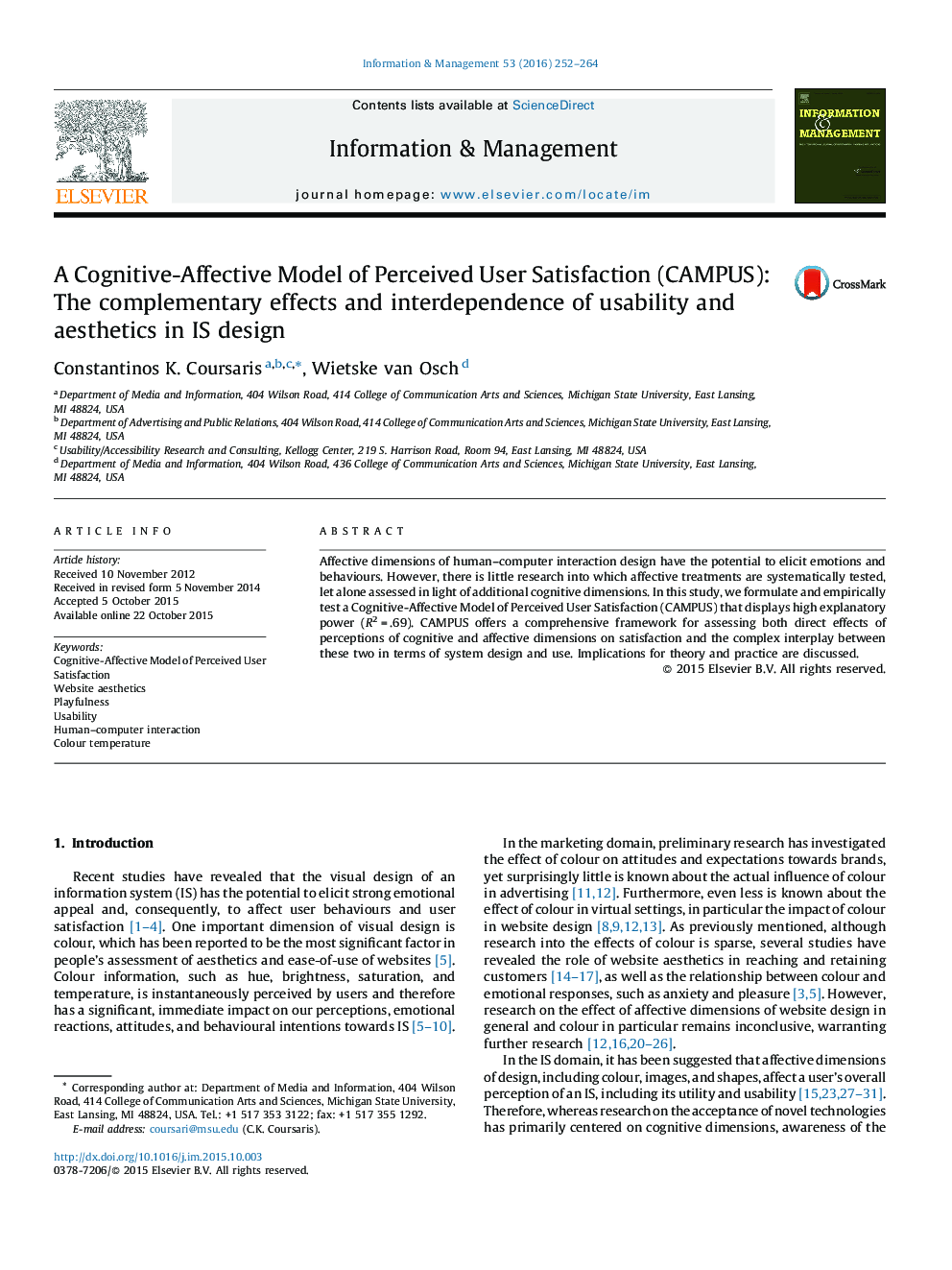| Article ID | Journal | Published Year | Pages | File Type |
|---|---|---|---|---|
| 553753 | Information & Management | 2016 | 13 Pages |
Abstract
Affective dimensions of human–computer interaction design have the potential to elicit emotions and behaviours. However, there is little research into which affective treatments are systematically tested, let alone assessed in light of additional cognitive dimensions. In this study, we formulate and empirically test a Cognitive-Affective Model of Perceived User Satisfaction (CAMPUS) that displays high explanatory power (R2 = .69). CAMPUS offers a comprehensive framework for assessing both direct effects of perceptions of cognitive and affective dimensions on satisfaction and the complex interplay between these two in terms of system design and use. Implications for theory and practice are discussed.
Related Topics
Physical Sciences and Engineering
Computer Science
Information Systems
Authors
Constantinos K. Coursaris, Wietske van Osch,
